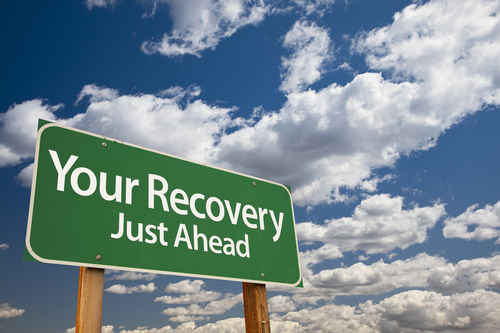CSMA Milpitas drug rehab centers provide a wide variety of addiction treatment options in the Santa Clara County area. These treatment facilities provide personalized treatment plans to address the distinct requirements of each individual battling drug abuse issues. With facilities and therapy programs similar to those used in luxury rehab centers, our Milpitas drug rehab centers provide evidence-based therapy like behavioral therapy and medication-assisted treatment to ensure the best chances of recovery.
At CSMA, we believe that financial restraints must not impede one’s journey toward sobriety. Thus, numerous payment accepted options are available to make treatment financially practical. Notably, for individuals with private health insurance, lots of treatment centers accept this mode of payment.
CSMA understands the significance of making rehab financially practical. As a result, people with medical insurance can utilize their insurance for this life-changing journey. Overcoming addiction does not have to be a financial burden, and CSMA accepts most health insurance prepares as a payment choice.
Getting help with addiction is a journey, but it’s a journey you don’t have to take alone. If you or a loved one is seeking help for addiction, bear in mind that help is available.


Addiction treatment is all about patient-centric care, administered by a team of qualified professionals who comprehend that every person’s journey with addiction is different. It varies not just in regards to the degree of drug addiction but likewise their lifestyle, psychological make-up, and familial and social environments. A well-rounded treatment technique requires a deep understanding of these factors.
Therapy is a powerful tool in addressing the psychological elements of addiction. At our Milpitas addiction centers, therapy is customized to an individual’s requirements and can include:
- Cognitive-behavioral therapy
- Individual therapy
- Family therapy
These therapeutic interventions equip individuals with coping strategies to prevent triggers and tools to maintain sobriety in the long term.
Drug addiction can have a profound influence on a person’s life but also their friends and family. Family therapy can be important in the recovery procedure, assisting families understand addiction and the role they can play in their loved one’s recovery. Individual and group therapy sessions are important to the addiction treatment program here.
Another essential aspect of holistic treatment is physical health, that includes nutritional counseling and exercise routines. These physical aspects considerably affect a person’s overall health and recovery process. Adjusting to a much healthier lifestyle can dramatically minimize drug cravings and minimize the risk of relapse.
Long-term recovery from drug addiction requires constant support even after initial treatment. We understand this and provide aftercare services and follow-up programs to make sure long lasting sobriety. These extensive follow-up processes are essential to prevent any possibility of regression and to hold the individual accountable for their recovery.
Drug addiction can feel frustrating, however it’s crucial to keep in mind that recovery is achievable. Milpitas Rehab Centers value the significance of this journey and offer detailed treatment solutions to guarantee a return to a healthy and productive life without drugs and alcohol.


At CSMA, the addiction treatment methods deeply integrate physiological, psychological, and way of life elements, making sure individuals can adjust to life after detox. The therapists and treatment professionals at CSMA work collaboratively with clients to produce an impactful and efficient treatment strategy post-detox. CSMA’s rehab centers have erudite addiction treatment professionals. Their wealth of experience and knowledge make navigating withdrawal and subsequent addiction treatment more workable and effective. The addiction treatment experts understand detox’s physical and emotional obstacles and after-effects.
They use customized services to fulfill each individual’s specific requirements and circumstances. Our rehab centers are geared up with a range of therapy choices for addiction treatment. These include:
- Group therapy
- Individual counseling
- Cognitive-behavioral therapy
- Motivational interviewing
Integrating these treatments into a customized addiction treatment strategy improves the probability of an effective recovery after detox.
CSMA Rehab Centers are supportive, non-judgmental environments where those undergoing detox and looking for addiction treatment can feel safe and protected. They are havens where clients can embrace a substance-free lifestyle after detox. The addiction treatment services provided foster resilience, mentor patients to handle everyday stressors without reverting to substance usage after detox.
In conclusion, life after detox in Milpitas’s Rehab Centers is absolutely nothing to dread, thanks to the attentively developed addiction treatment techniques that deal with individual needs.
Experienced professionals, holistic therapy options, and compassionate environments make the journey from detox to addiction treatment to recovery less challenging.
Among our rehabilitation centers’ crucial differentiating features is their holistic treatment approach. They do not simply rely on the detox process as the total service to addiction. Instead, they promote and carry out a comprehensive recovery strategy, promoting physical, mental, and spiritual health as vital elements of a person’s total wellness. This robust post-rehab life strengthens the person’s resolve to avoid substance usage, guaranteeing a successful social shift.
Our Milpitas, CA treatment facilities are staffed with a devoted team of professionals who bring a wealth of knowledge and hands-on experience. This knowledge contributes tremendously towards developing tailored rehab and recovery plans to address each resident’s special needs and challenges. These professionals offer consistent care and guidance, ensuring residents browse their rehab journey with minimal hiccups. These teams of professionals have actually unquestionably added to numerous effective rehab cases in Milpitas’s rehab facilities, sealing the city’s track record as a trusted location for extensive rehabilitation.
Whether it is drug abuse or other forms of addiction, repeated rehab efforts will be required for some patients. CSMA assures those looking for help that their rehabilitation is our top priority, no matter how challenging the journey may seem. This commitment to rehab and recovery can be seen in the enormous efforts to fine-tune the rehabilitation methods, expanding the support group and mental health resources offered to residents on their path to recovery.
The devotion to rehab and recovery in our Milpitas, CA rehab centers lines up with our broader vision of a healthy and productive community. Our efforts in healing and recovery stick out in the area of mental health, in which tailored treatment programs are developed keeping individuals’ specific needs in mind.


Our technique to addiction treatment in Milpitas, CA continues to evolve, integrating the current research study and therapies to make sure a high success rate. This multi-pronged method has actually led many individuals to preserve a drug-free life after treatment. Our intensive outpatient and inpatient programs concentrate on eliminating substance abuse and addressing the underlying problems that caused addiction in the first place.
The Milpitas addiction treatment programs include numerous approaches such as detoxification, behavioral therapies, counseling, alternative treatments, and continual support even after treatment. The journey to a drug-free adult life is certainly tough, and with the continuous support supplied by our Milpitas rehab centers, the journey ends up being achievable and sustainable.
While traversing the course of recovery, individuals gain a new perspective and outlook on life. They can restore their lives, re-establish healthy relationships, pursue their interest, and gain back control of their life when controlled by drugs.
Addressing drug addiction benefits the afflicted individuals and the society at large. It eliminates the societal expenses of drug addiction and adds to a healthier and more dynamic community.
Whether you or your loved one is starting a drug-free life, this transition is a powerful procedure that requires support, understanding, and empowerment. This is specifically what CSMA rehab centers pledge to use to individuals having problem with drug dependence.
At CSMA, we continually strive to provide the optimum level of client care and support, reflecting our core belief in the possibility of recovery and a drug-free life.
FAQs
Drug Rehabs Near Milpitas CA





